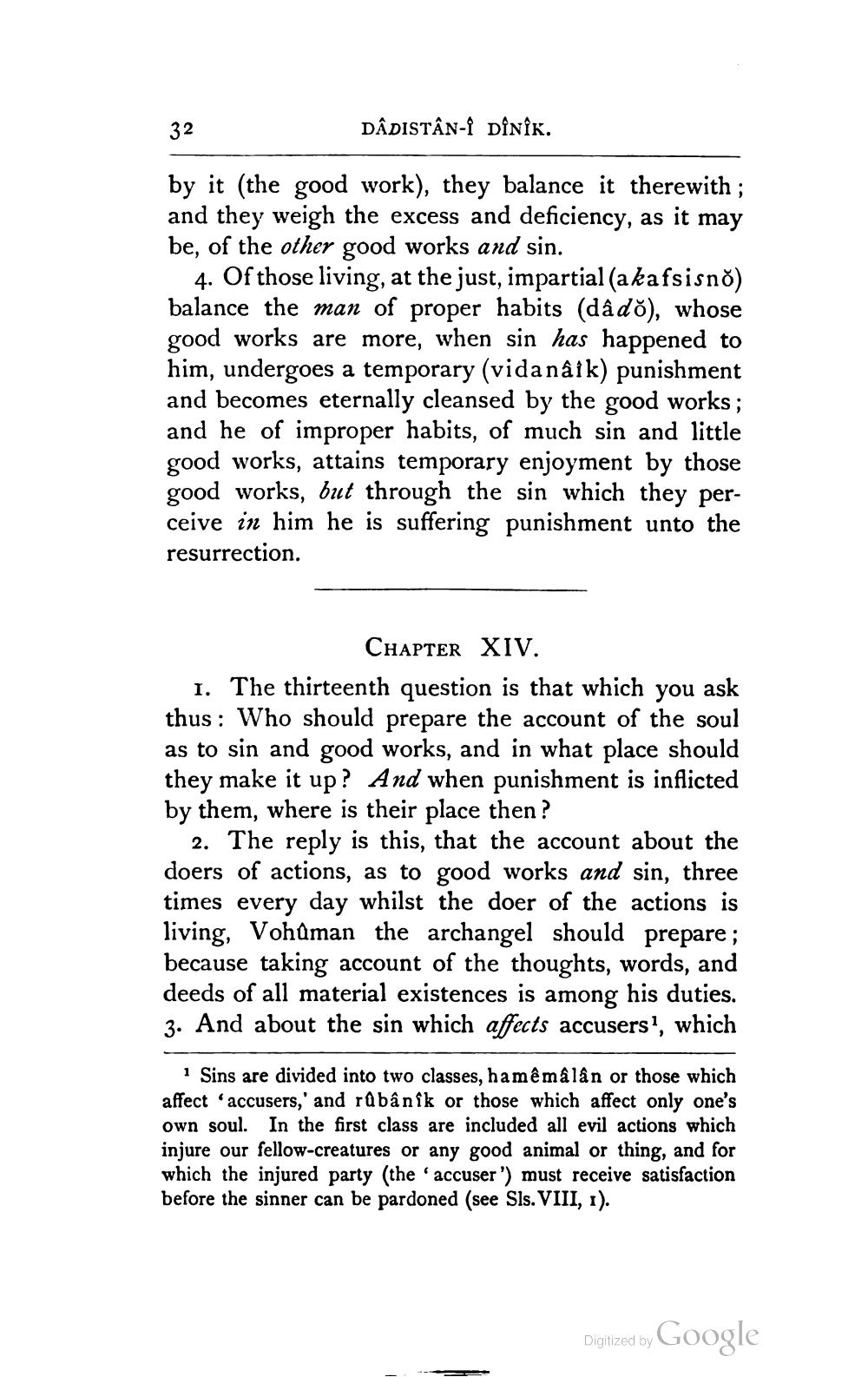________________
32
DÂDISTÂN-Î DÎNÎK.
by it (the good work), they balance it therewith; and they weigh the excess and deficiency, as it may be, of the other good works and sin.
4. Of those living, at the just, impartial (a kafsisno) balance the man of proper habits (dâ do), whose good works are more, when sin has happened to him, undergoes a temporary (vida nâik) punishment and becomes eternally cleansed by the good works; and he of improper habits, of much sin and little good works, attains temporary enjoyment by those good works, but through the sin which they perceive in him he is suffering punishment unto the resurrection.
CHAPTER XIV. 1. The thirteenth question is that which you ask thus : Who should prepare the account of the soul as to sin and good works, and in what place should they make it up? And when punishment is inflicted by them, where is their place then?
2. The reply is this, that the account about the doers of actions, as to good works and sin, three times every day whilst the doer of the actions is living, Vohůman the archangel should prepare ; because taking account of the thoughts, words, and deeds of all material existences is among his duties. 3. And about the sin which affects accusers', which
1 Sins are divided into two classes, ha mêmâlân or those which affect 'accusers,' and rûbânik or those which affect only one's own soul. In the first class are included all evil actions which injure our fellow-creatures or any good animal or thing, and for which the injured party (the accuser ') must receive satisfaction before the sinner can be pardoned (see Sls. VIII, 1).
Digitized by Google




